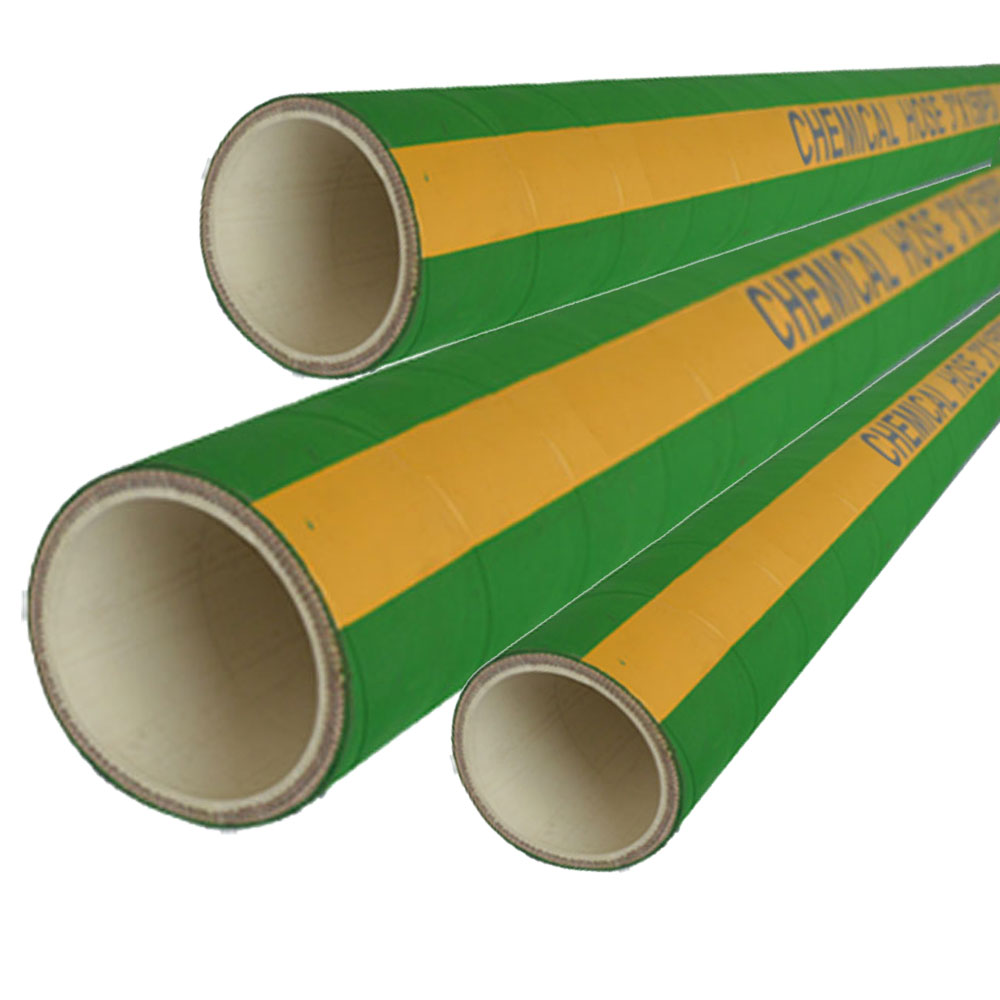Chemical hoses and fittings are designed to be used in industrial settings, where toxic chemicals need to be transported from one place to another. Chemical hoses and fittings come in all shapes and sizes, and it’s important to keep track of each type as you assemble your overall setup. Read on for more information about chemical hose resistance and industrial hoses.
Table of Contents
Chemical Hose Sizes
Chemical hoses are specially designed to resist corrosion, abrasion, and other stressors. However, just like an average industrial hose, chemical hose comes in a variety of different sizes. The fittings used on these hoses will vary as well. To help you better understand chemical hose sizing standards, we’ve listed a few below
chemical Hose Sizing Standards
Chemical hoses come in a variety of sizes. The most common hose sizing standard is called NPS (Nominal Pipe Size). It is used to size pipes, fittings, valves, etc. Measuring for NPS uses outside diameter of pipe to determine nominal pipe size, which corresponds to inside diameter of fitting/valve. Chemical hoses are typically sized by their outside diameter.

Fluoropolymer Chemical Hoses
Fluoropolymer is one of many types of chemical hoses available. It can be used in extreme heat conditions, so it’s best suited for professional industries, such as energy production. Fluoropolymer is immune to abrasion, has very low permeability to gas, has superior resistance to acids and alkalis, and it’s used in high-temperature applications. Unfortunately, these hoses aren’t compatible with water or corrosive materials (such as strong acids), and they don’t function well under high pressure or high flow rates.
Multipurpose Chemical Hoses
Industrial hoses used for handling chemicals must meet specific requirements. The material they’re made from must be strong enough to withstand chemical corrosion, but they also need to be compliant with U.S. Department of Transportation (DOT) regulations on transporting hazardous materials. Multipurpose chemical hoses are designed with fittings that allow them to handle water, oil, gas, hot fluids, cold fluids, and more without leaking or bursting. Using multipurpose hoses in your workplace can keep your equipment running efficiently while preventing spills that could put employees in danger.
Specially Treated Chemical Hoses
Some chemical hoses are treated with special, flame-retardant chemicals to help them resist heat. For example, if you’re using an air hose that contains compressed air but will also be exposed to hot temperatures, you may want to look for a fire-resistant model. The chart below can help you determine whether your application calls for specially treated chemical hoses. If it doesn’t, regular plastic or rubber models will likely suffice; they tend to be less expensive than specialized ones.

